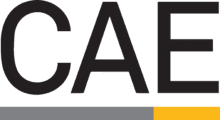Navigating the Roadmap to Employability: Preparing Students for the Future
Watch the RecordingListen to the Podcast
To prepare students to be successful in tomorrow’s workplace, they must not only have deep content knowledge but also the skills to apply that knowledge.
During the edLeader Panel “A Roadmap to Employability: Integrating Higher-Order Skills Into Curricula and Assessment,” distinguished speakers shed light on crucial aspects of education policy, funding, and curriculum development, with a focus on preparing students for employability and entrepreneurship.
Doug Mesecar, Partner at Strategos Group and Former Deputy Chief of Staff of the U.S. Department of Education, initiated the conversation with an important question: Are we preparing students for the future?
Emphasizing the role of federal policy and funding in preparing students for their next steps, he underlined the need to align educational efforts with the diverse pathways students might take, be it further education or entering the workforce.
Despite higher graduation rates, many students still lack preparedness for life beyond high school. Mesecar advocated for the use of different types of assessments, such as portfolios and assignment-based learning, to demonstrate mastery, and noted that the Every Student Succeeds Act (ESSA) supports innovative assessments to gauge students’ learning in various ways.
Stimulus funds, such as the American Rescue Plan Act, offered opportunities to explore alternative assessment methods and shift away from traditional multiple-choice, end-of-year assessments. Additionally, the upcoming Title I and Title II funding opportunities were discussed, contingent on congressional leadership.
States are actively reimagining curriculum and assessment models. Mesecar highlighted that 29 states have adopted competency-based education, moving away from rote memorization and towards higher-order thinking. Sixteen states are developing Portrait of a Graduate programs, while six states are diving into personalized learning. Notably, in Minnesota, 20 districts are embracing a competency-based approach.
Measuring these skills remains a challenge, but many schools and districts are using federal funds to address this issue.
Johnny Key, Partner at Strategos Group and Former Secretary of Education for the Arkansas Department of Education, then provided a state-level perspective, emphasizing the need for student-centered education. In states like Arkansas, local schools drive innovation, but the challenge is to create equitable learning opportunities that resonate with students’ lives.
Building partnerships with local organizations, such as historical societies and chambers of commerce, was highlighted as essential. Key emphasized that adult involvement should commence early and that diversity of opinion and interests should be considered to engage students effectively.
He also noted the importance of programs like Odyssey of the Mind, Destination Imagination, and others, which develop students’ agency, teamwork, and technological skills. Leveraging existing resources, such as on-staff engineers or computer scientists, can lead to the formation of robotics clubs. Entrepreneurship and economics programs, like NFTE and Economics Arkansas, help students explore potential career paths.
The panelists also discussed measuring success in developing higher-order skills, a domain where Chief Academic Officer Dr. Doris Zahner’s work at CAE is significant. CAE employs real-world scenarios to assess students’ abilities to recommend solutions, emphasizing critical thinking and communication skills. This approach isn’t content specific but can be adapted to subject-matter examples.
The Assess, Teach, Improve, Assess framework, mentioned by Dr. Zahner, was shown to lead to significant improvements in students’ critical-thinking skills. The model involves initial assessment, reviewing reports, content-based instruction based on results, and a final reassessment.
The edLeader Panel highlighted the evolving landscape of education, where federal- and state-level initiatives, local partnerships, and innovative assessment methods play crucial roles.
As students journey towards employability and entrepreneurship, it is clear that the traditional education paradigm is giving way to a more holistic approach, where higher-order thinking skills are at the forefront of the curriculum. This shift promises to better equip students for the diverse challenges they will face in the modern world and workforce.
Learn more about this edWeb broadcast, A Roadmap to Employability: Integrating Higher-Order Skills Into Curricula and Assessment, sponsored by CAE.
Watch the RecordingListen to the Podcast
Join the Community
College, Career, and Life Readiness is a free professional learning community where educators can receive and share information about how to prepare students for college and careers.
Since 2002, CAE has developed performance-based and custom assessments that authentically measure students’ essential academic and career skills. Our Collegiate Learning Assessment (CLA+) and Success Skills Assessment (SSA+) for higher education and College and Career Readiness Assessment (CCRA+) for secondary education evaluate the skills that are predictive of positive college and career outcomes and in demand by employers: critical thinking, problem solving and effective written communication. Over 825,000 students at more than 1,300 secondary and higher education institutions globally have completed CAE’s essential skills assessments.
As a nonprofit whose mission is to improve student outcomes, CAE also offers critical thinking skills curriculum, professional development, and designs custom, innovative performance assessments across all subject areas and grades. To learn more, please visit www.cae.org and follow us on LinkedIn, YouTube, and Twitter.
Article by Laura Smulian, based on this edLeader Panel






Comments are closed.